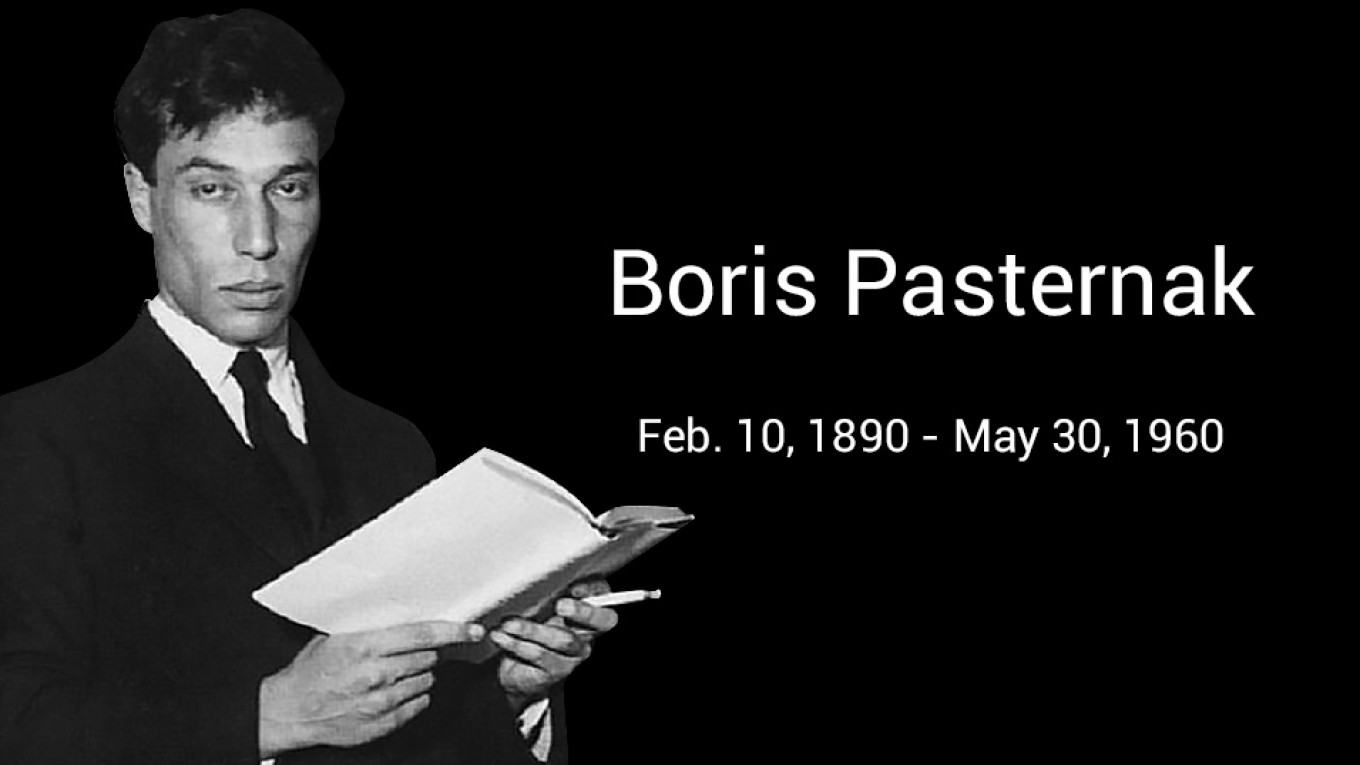On this day in 1890, the writer Boris Pasternak was born into an affluent and cultured Russian-Jewish family. His father, Leonid, was a renowned artist and professor at the Moscow School of Painting; his mother Rosa, nee Kaufman, was a concert pianist. His parents’ social circle included notable figures of the day such as Sergei Rachmaninoff and Leo Tolstoy. The influence of this creative community led the young Pasternak to study first music and then philosophy, both in Russia and abroad. In 1912 he abandoned academia to pursue his true calling: poetry and prose.
The outbreak of World War I signaled changing tides for Pasternak; unable to serve in the army (having fallen off a horse as a child and been left with one leg shorter than the other), he spent four years as a clerk in a Ural factory. Despite his trepidation about the brutality employed by the revolutionaries, Pasternak opted to stay in Russia as the rest of his family emigrated to Germany. Over the next few decades Pasternak would alternate between despair and optimism in his new role as a Soviet poet.
Pasternak’s relationship with the Soviet state was complex and contradictory. Although an initial supporter of the revolution, by the late 1920s he became disillusioned with the usage of art primarily to exalt the Soviet government. After refusing to sign a 1937 statement from the Union of Soviet Writers supporting the death penalty for defendants of a show trial, he fully expected arrest, but was spared by Stalin himself (who thought the poet’s Tolstoyan philosophies to be harmless).
On the other hand, his fumbling defense of his fellow poets garnered him a mixed reputation among the more dissident Soviet literary elite. Pasternak’s political reputation was never a straight line.
Pasternak’s work was inseparable from his rich and tumultuous personal life. He suffered two failed love affairs before his 1922 marriage to Evgeniya Lurye, both of which are recounted in his early poetry. While his wife was abroad for medical treatment in 1930, Pasternak met and fell in love with the married Zinaida Neuhaus, for whom he would divorce his wife and marry two years later. Although he would remain married to Zinaida for the remainder of his life, in 1946, Pasternak would meet the much-younger Olga Ivinskaya, who would become his longtime mistress. Ivinskaya would spend nearly a decade of her life imprisoned for her association with the poet.
Pasternak was and perhaps is still best known in Russia as a poet. His first collection, “My Sister, Life” (1922) was a literary sensation. He was one of the four great poets of the 20th century along with Anna Akhmatova, Marina Tsvetaeva, and Osip Mandelshtam. He is also renowned for his translations, particularly of Shakespeare, which remain popular with readers although critics find them to be very “pasternakized.”
In the West, his most lasting legacy is his novel “Doctor Zhivago,” a musing on the brutality of the Russian revolution and the inner turmoil of love and self-actualization. Pasternak’s life itself served as a basis for the novel. The setting alternates between Pasternak’s familiar Moscow and Ural locales, the characters bear resemblance to Pasternak’s own acquaintances (particularly the character of Lara to real-life Ivinskaya), and the protagonist navigates the same revolution and newfound state that Pasternak found himself caught up in. Completed in 1956, the book was rejected by Soviet publishers and was instead smuggled abroad for publication. The 1958 announcement that Pasternak would receive the Nobel Prize was met with outrage by the Soviet state, and out of self-preservation Pasternak turned down the award. He would live in relative poverty for the remaining two years of his life, before succumbing to lung cancer in 1960.
His house in Peredelkino, where he wrote some of his most famous works, was only opened as a museum on Feb. 10, 1990.
A Message from The Moscow Times:
Dear readers,
We are facing unprecedented challenges. Russia's Prosecutor General's Office has designated The Moscow Times as an "undesirable" organization, criminalizing our work and putting our staff at risk of prosecution. This follows our earlier unjust labeling as a "foreign agent."
These actions are direct attempts to silence independent journalism in Russia. The authorities claim our work "discredits the decisions of the Russian leadership." We see things differently: we strive to provide accurate, unbiased reporting on Russia.
We, the journalists of The Moscow Times, refuse to be silenced. But to continue our work, we need your help.
Your support, no matter how small, makes a world of difference. If you can, please support us monthly starting from just $2. It's quick to set up, and every contribution makes a significant impact.
By supporting The Moscow Times, you're defending open, independent journalism in the face of repression. Thank you for standing with us.
Remind me later.






